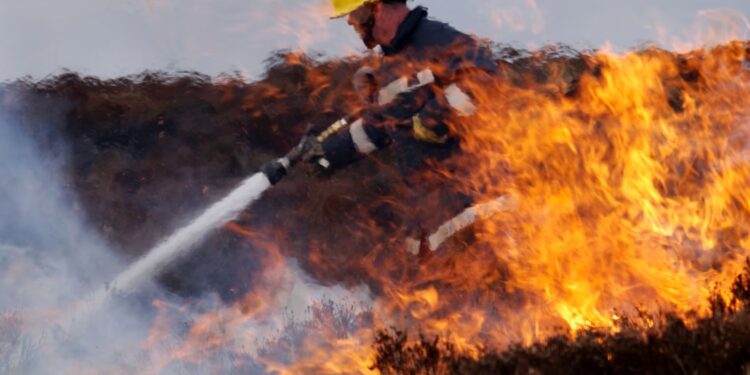Authorities across the United Kingdom have issued renewed warnings about lighting outdoor fires as the number of wildfires has surged past 500 already this year. Fire brigades and environmental agencies are urging the public to exercise extreme caution during dry spells, amid fears that continued negligence could lead to even more destructive and frequent blazes.
Unseasonably dry conditions in parts of England, Wales and Scotland have turned grasslands, moorlands and forests into tinderboxes. The surge in wildfires, many of them traced to campfires, disposable barbecues and garden bonfires, has alarmed emergency services and environmentalists alike. In several cases, flames spread rapidly across nature reserves and parkland, threatening wildlife habitats and placing local communities at risk.
The National Fire Chiefs Council (NFCC) stated that many of the incidents this year were avoidable. “This number is concerning and demonstrates how vulnerable our landscapes are becoming,” said Paul Hedley, wildfire lead for the NFCC. “We’re seeing more frequent, more intense fires, and often they’re being sparked by careless or thoughtless behaviour outdoors.”
The majority of recent blazes have occurred in the South East, Yorkshire and parts of the Midlands. One major fire in Surrey scorched over 200 hectares of heathland in early May, requiring more than a hundred firefighters to bring under control. Similar outbreaks have occurred on the Pennines and in the Scottish Highlands, with local brigades stretched thin.
Experts link the growing wildfire trend to a warming climate and shifting seasonal patterns. While traditionally a Mediterranean phenomenon, wildfires are becoming increasingly common in the UK, with 2022 and 2023 marking record highs. The Met Office has already flagged 2025 as a likely candidate for one of the UK’s hottest years on record, heightening concerns about the cumulative risks.
Firefighters are now calling for tighter controls on outdoor burning, including possible bans on barbecues in high-risk areas and greater enforcement of fire bans in public parks. Some councils have already implemented temporary restrictions, while nature charities are asking for better signage and public education.
“It’s not just about the fires themselves,” noted Emma Marsh of the Wildlife Trusts. “It’s about long-term damage to ecosystems, loss of biodiversity, and the time and resources it takes to recover. Many of these places simply don’t bounce back.”
The NFCC has also called for better training and investment in wildfire response, arguing that many rural fire stations are ill-equipped to deal with the scale and frequency of modern blazes.
As summer approaches and dry conditions persist, the message from authorities is clear: caution is no longer optional. A single spark in the wrong place can trigger days of destruction, and with the climate crisis intensifying, Britain’s green spaces are more fragile than ever.
newshub finance



Recent Comments